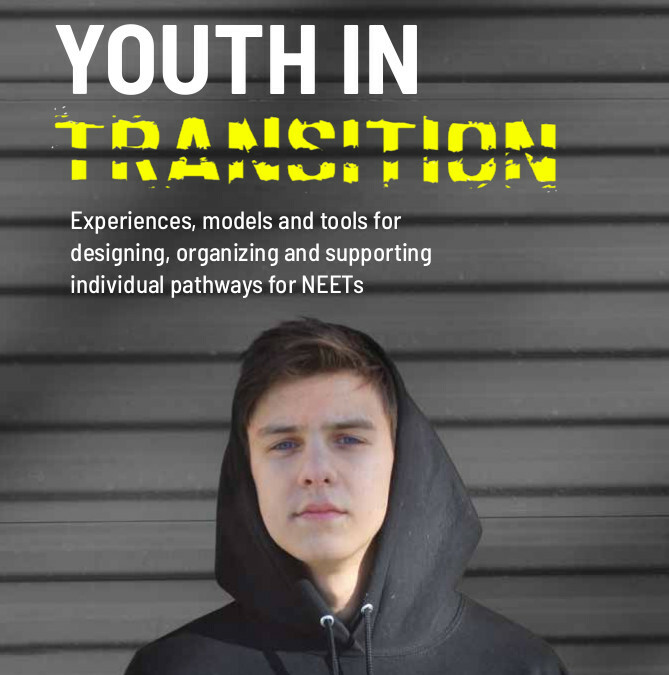The intellectual outputs form a coherent concept, containing findings from empirical data and desk research, as well as models, methods and tools emerging out of practice-based work with NEETs and professionals in Denmark, Iceland and Slovenia. The cross-national production processes and their results were quality assured by researchers from the University of Hamburg.
The freely available materials offer expertise in scaffolding the most vulnerable sub-group of the NEETs on their pathways. These ´young people on the edge´ are characterized by a complexity of personal and social problems, caused by psychological or physical
diagnoses, socially disadvantaged backgrounds, social dysfunctionalities such as drugs and crime or other obstacles in life.
YIT focused on cross-professional support before and during the individual pathways of the NEETs, aligning their dreams with vocational maturity, with self-support via job or education as the final goal.
The brochure was coordinated and authored by vocational consultant Regina Lamscheck-Nielsen, Moeve, Denmark, a partnering organization in YIT. The author cooperated closely with experts from the partner organizations in the four countries.
Who are the NEETs
The term “NEET” refers to young people who are neither in education, nor employment or training. They typically struggle with a complexity of problems such as personal and/or social difficulties, psychological diagnoses, abuse, drugs, crime or lack of basic
educational skills. Their difficulties typically occur in combination with each other.
All in all, the total number of NEETs in Europe is high and has been relatively stable over the years, even when measured for different age groups. The percentage of NEETs in the 28 European member states aged 15-24 years was 10.9% according to Eurostat (2018). OECD calculated the percentage 13.3%, including the age range of 24-29 years, but excluding Bulgaria, Romania and Croatia (2018).

